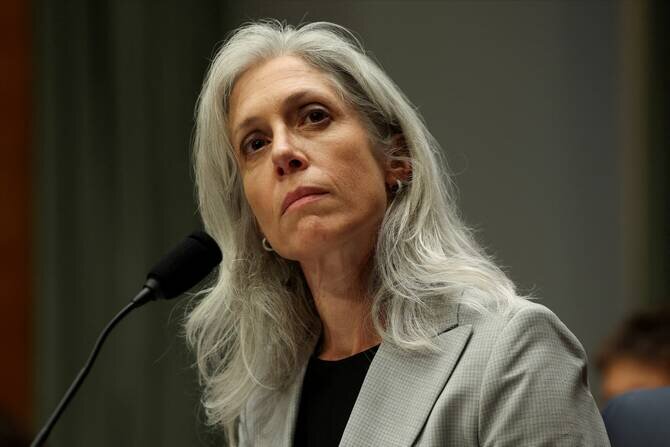
CDC Chief Resigns Amid Rising Tensions Over Vaccine Policies and Public Health Directives
Four senior officials also resign from the US Centers for Disease Control and Prevention.
The United States Centers for Disease Control and Prevention (CDC) has faced significant turmoil with the resignation of its Director, Susan Monarez, less than a month after she took office.
This departure comes amidst a wave of resignations among top officials, highlighting deep-seated tensions over vaccine policies and public health directives within the agency.
The Department of Health and Human Services announced Monarez's exit but did not provide specific reasons for her abrupt departure.
Her legal team contested the circumstances surrounding her ouster, accusing US Secretary of Health and Human Services Robert F.
Kennedy Jr. of targeting Monarez for her refusal to endorse 'unscientific directives' and dismissing health experts.
The resignations extend beyond Monarez, with key figures within the CDC choosing to step down in response to what they perceive as a rise in health misinformation, attacks on science, budget cuts, and attempts to influence the agency's operations.
Notably, Dr. Debra Houry, the Chief Medical Officer, and Dr. Demeter Daskalakis, Director of the National Center for Immunization and Respiratory Diseases, cited these factors as their reasons for leaving in their resignation letters.
The departures reflect a broader crisis within the CDC, which has been grappling with budget cuts proposed by former President Donald Trump's administration and further plans by Kennedy to reorganize the agency.
These changes have been seen as detrimental to the CDC's ability to address pressing public health challenges effectively.
The recent shooting at the CDC's Atlanta headquarters adds an additional layer of tension to the already fraught environment, according to the union representing CDC workers.
These internal conflicts have significant implications for public health policy in the United States, particularly concerning vaccine recommendations and the handling of health misinformation.
The changes made by Kennedy, including the dismissal of the CDC's expert vaccine advisory panel and modifications to COVID-19 vaccine eligibility criteria, signal a shift away from evidence-based guidelines towards policies that critics argue could return the country to a 'pre-vaccine era.'
Monarez herself faced scrutiny during her confirmation hearing for her views on vaccines, highlighting the political and ideological divides influencing public health decisions in the United States.
Meanwhile, Kennedy's efforts to investigate the causes of autism have been met with skepticism, given his promotion of discredited links between vaccines and autism.
This departure comes amidst a wave of resignations among top officials, highlighting deep-seated tensions over vaccine policies and public health directives within the agency.
The Department of Health and Human Services announced Monarez's exit but did not provide specific reasons for her abrupt departure.
Her legal team contested the circumstances surrounding her ouster, accusing US Secretary of Health and Human Services Robert F.
Kennedy Jr. of targeting Monarez for her refusal to endorse 'unscientific directives' and dismissing health experts.
The resignations extend beyond Monarez, with key figures within the CDC choosing to step down in response to what they perceive as a rise in health misinformation, attacks on science, budget cuts, and attempts to influence the agency's operations.
Notably, Dr. Debra Houry, the Chief Medical Officer, and Dr. Demeter Daskalakis, Director of the National Center for Immunization and Respiratory Diseases, cited these factors as their reasons for leaving in their resignation letters.
The departures reflect a broader crisis within the CDC, which has been grappling with budget cuts proposed by former President Donald Trump's administration and further plans by Kennedy to reorganize the agency.
These changes have been seen as detrimental to the CDC's ability to address pressing public health challenges effectively.
The recent shooting at the CDC's Atlanta headquarters adds an additional layer of tension to the already fraught environment, according to the union representing CDC workers.
These internal conflicts have significant implications for public health policy in the United States, particularly concerning vaccine recommendations and the handling of health misinformation.
The changes made by Kennedy, including the dismissal of the CDC's expert vaccine advisory panel and modifications to COVID-19 vaccine eligibility criteria, signal a shift away from evidence-based guidelines towards policies that critics argue could return the country to a 'pre-vaccine era.'
Monarez herself faced scrutiny during her confirmation hearing for her views on vaccines, highlighting the political and ideological divides influencing public health decisions in the United States.
Meanwhile, Kennedy's efforts to investigate the causes of autism have been met with skepticism, given his promotion of discredited links between vaccines and autism.











